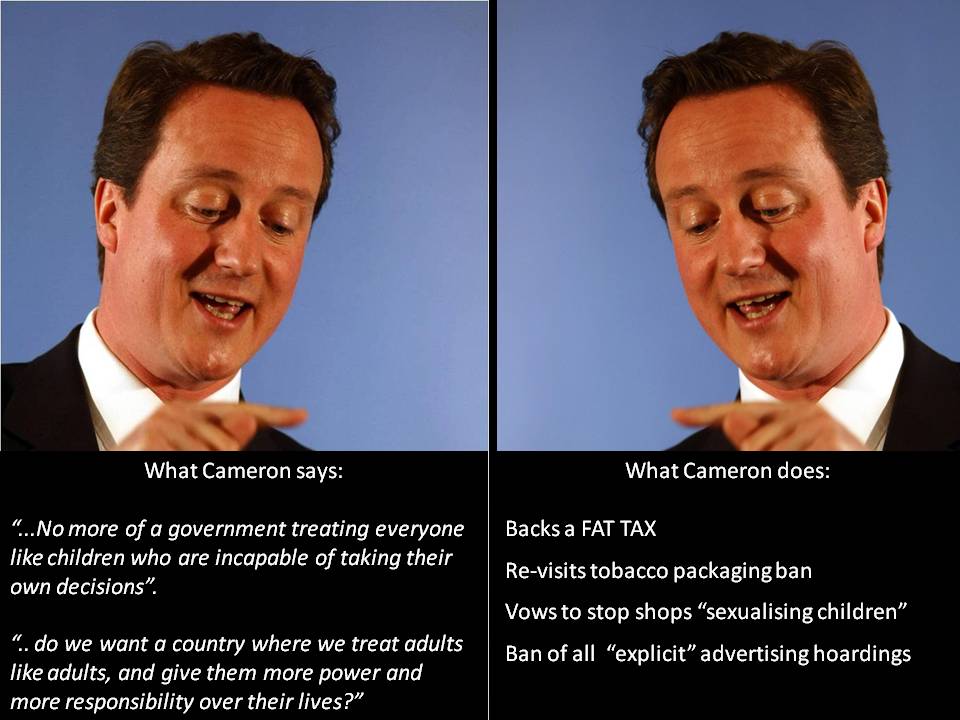Has Cameron made his last “liberal Conservative” speech?
Am I the only one who is getting increasingly annoyed at the two-faced Cameron that seems to be emerging  ?
?
On the one hand he urges us all to engage with his Big Society project – insisting that this is about “treating adults like adults” and asking people to “take responsibility for their lives” – but falls back on nannying and legislation at the first sign that society isn’t marching to his new tune quite as quickly as he would like.
Back in 2009 – before he was elected he was very clear that society was broken because big government interfered too much:
Even in February 2011 his mantra was still along the lines of personal responsibility:
Now it all seems to be about government getting involved in the way people bring up their children, introducing another consultation into tobacco (plain packaging), stopping all “explicit” advertising on hoardings and even considering a FAT tax for everyone (despite the fact that back in 2008, when on the hunt for votes, Andrew Lansley said “..Providing information is empowering, lecturing people is not. So, no excuses, no nannying..”).
Now Cameron tells us…. “…we’ve got to be less sensitive to the charge that this is about interfering or nannying”.
Do we simply accept that Cameron is a just another two-faced politician who says what ever suits? He may have felt the need to appear “liberal” pre-election but is, at heart, an old fashioned Tory that can’t help but look down his sneery nose at those who are too fat, too chavvy or too stupid to help themselves and knows in his heart that Nanny knows best?
Possibly. He has an interfering gene in him that’s for sure – having a go at WHSmith for putting chocolate oranges at the check out, BHS for its sale of tiny tots padded bras, Lily Allen for her song lyrics etc.
But if we do believe his stated desire to be a “liberal Conservative” why is he seemingly being tossed from pillar to post, wanting to be liberal, but overseeing an increasing number of policies that are anything but?
I really don’t know. Perhaps he has given up on the fight with the Tory right. Perhaps he doesn’t have sufficient control over his Ministers to ensure that departments stick to the plan. Or perhaps his Ministers don’t have enough control over the Whitehall bureaucrats that ultimately formulate policy. It’s possible Cameron’s reliance on polls and focus groups have driven him into the arms of Mumsnet/Mothers Unions/ASH/BMA.
Whatever the reason, it looks right now as though Cameron has decided to leave liberalism to the Liberals.
